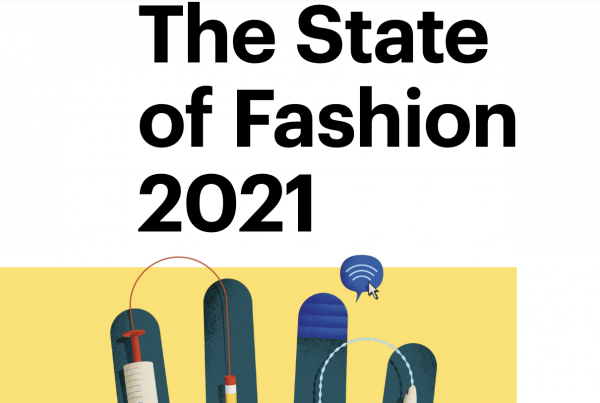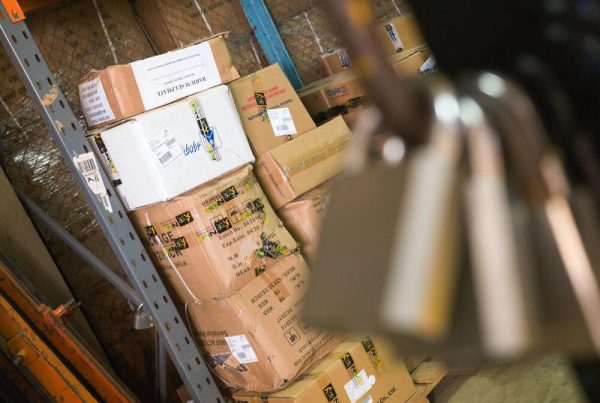The biggest report on the state of Danish fashion is out. We’ve read it, and the insights are clear.
Every year, accounting giant Deloitte takes a good hard look at the state of fashion in Denmark. It feeds several terabytes of complex datasets to a bunch of well dressed number crunchers, who then take the overall pulse of the Danish fashion industry. This is what we learned by reading their report.
Knowing your customers is more important than ever
This first insight is nothing new, but it is more important than ever: you should know your customers inside out. Deloitte notes that traditional retailers are increasingly under pressure from the ease and simplicity of online shopping. With customers changing their shopping behaviour, brands need to come up with new ways to really understand their customer base. In an era where everyone leaves digital footprints around the web, retailers and brands alike are using data in innovative ways to help them further understand their customers.
In fact, Deloitte finds that using data-driven insights is key to stay ahead of the game: brands and retailers are not only able to differentiate themselves from the competition, they can also more easily predict changes in the market. The report’s conclusion is unambiguous: brands and retailers who aren’t using data driven insights effectively are falling behind.
Niklas Joesen, Traede’s COO, agrees:
“The brands we work with are becoming increasingly aware of the positive impact that data analysis can have on their business. Easy access to it is becoming a competitive advantage, and the brands we work with are coming up with ever more sophisticated questions to try and understand how they can gain a competitive advantage.”
Simplifying processes is key
The report mentions that globalisation is making international expansion easier, and therefore more tempting than ever, but notes that getting the basics right first is critical. Supply chain and sales processes need to be smooth and lean to prevent bottlenecks later on. If you can build an effective supply chain for a few but popular products, scaling globally will become easier. Having fewer processes and partnerships also means you can focus on more important matters, like research, development and innovation.
The report mentions RAINS, a Danish rainwear brand. Their simple setup turned out to be key when they headed overseas, as Daniel Brix Hesselager, RAINS’s Managing Director notes:
”The less complex your business is, the fewer partnerships you need with folks outside the house. And the less of those, the more you can concentrate on the partnerships you already have.”
RAINS credits setting up simple processes in particular as a key reason for their growth into a rapidly expanding, thriving global business.
Going digital is the future
An easy way to automate or optimise processes is through the use of new technology. Technology has evolved to a point where digital systems are sophisticated and efficient, but still affordable and user friendly. They cut down data entry, and therefore human errors, and can combine multiple processes into one process, in turn allowing people to focus on aspects of the business that drive more value.
In fact, according to McKinsey, digitally mature B2B players actually generate 3.5 percent more revenue and are 15 percent more profitable than the rest of their peers. The Deloitte report highlights Mos Mosh, an innovative Danish fashion brand. Its CEO, Kim Hyldahl, explains that the massive growth they have seen can be attributed to investment in the right digital solutions:
“We’ve made the right investments in IT. We’ve digitized our ordering systems, agent portal and other things. Everything runs entirely digitally, which saves our sales agents a massive amount of time.”
Niklas Joensen, Traede’s COO highlights the importance of having a strong technical setup:
“Mos Mosh is a perfect example of a brand indulging in the “boring” side of running a successful fashion brand. It’s an important aspect to mention, as many brands see that as secondary to product design. Without a digital, online setup where brands, employees, sales agents, distributors and retail customers can handle business, Mos Mosh would much more inefficient.”
To sum up
The lessons from Deloitte’s report are clear: knowing your customers inside out and simplifying your business is key for growth. Not only that, technology is key to achieve that, as is using technology. So what happens next? Look at your existing processes – do you have a single platform to manage products, customers and orders? Can you scale effectively without hiring many people? Have you got rid of time spent on basic manual tasks, like data entry, or entering the same information in multiple systems? If you haven’t, then it might be worth considering getting a B2B ecommerce platform as a starting point.
If you read Danish, you can download the report here.



